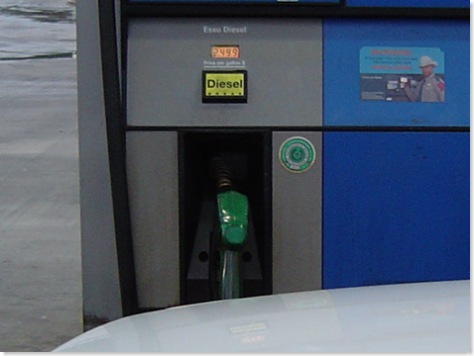With the federal election less than a week away, the contending parties have made most of their election promises (and with any luck, they might even keep a few of them), so what better time is there to compare and contrast to find out which party will have the biggest effect on alternative fuels in Australia? This is a bit of a long one, so read on after the jump.
Archive for the ‘Features’ Category
Analysis: which party has the policies to make a difference?
Posted by Car Geek on November 21, 2007
Posted in alternative fuels, Features | Leave a Comment »
Industry roundup: diesel
Posted by Car Geek on July 22, 2007
This is the first of a number of feature articles where I hope to provide a basic synopsis of each major competitor in the alternative fuel market, from the widely available to the wildly speculative. These articles won’t go into a large amount of detail, but are mainly designed to provide a starting point for people who are new to the alternative fuel scene.
To start, we’re looking at diesel fuel – not always recognised as an alternative fuel, but certainly a fuel with benefits to compete with standard unleaded petrol.
What is it?
Petroleum diesel, more commonly referred to simply as diesel, is a fuel used primarily in heavy vehicles but increasingly in passenger vehicles. It is a distillate of fuel oil. Diesel is used in compression-ignition engines, which compress a mixture of air and fuel vapour to a point where it ignites, removing the need for spark plugs. From a technical point of view, diesel fuel generally has a chemical formula of C12H26, and holds approximately 15% more energy per volume than standard unleaded petrol.
Can I use it?
Diesel can only be used in vehicles which have been designed for its use. It cannot be used in vehicles which take any form of petrol. If you are unsure, consult your vehicle manual or manufacturer.
Why would I want to use it?
Diesel engines are generally more efficient than spark-ignition engines, owing mainly to their higher compression ratio. A turbocharger is often added in passenger vehicles to further increase efficiency and power. Diesel-powered vehicles can often use up to 30% less fuel than their petrol counterparts. In addition, diesel produces less carbon dioxide, reducing the amount of greenhouse gases from your vehicle.
Why wouldn’t I want to use it?
Despite reducing carbon dioxide, diesel fuel generally results in higher nitrous oxide (NOx) and particulate emissions, which can cause smog. Particulates of any size can also cause health problems. Advances in fuel processing (such as reducing sulphur) and vehicle technology (such as Bluetec and particulate filters) are helping to reduce many of these problems.
How much does it cost?
As an oil byproduct, the price of diesel fuel can vary with the price of oil. However, the variation is generally less than unleaded petrol. Reduced fuel consumption means that the cost per kilometre is generally less than unleaded. Diesel passenger vehicles generally cost more than their petrol counterparts.
Where can I get it?
Most major manufacturers make diesel vehicles of some description – many of these are small or mid-size vehicles, often from Europe where diesel passenger cars are very popular. Diesel fuel is widely available at most service stations, thanks mainly to its popularity in commercial vehicles.
Posted in Diesel, Features | 3 Comments »

